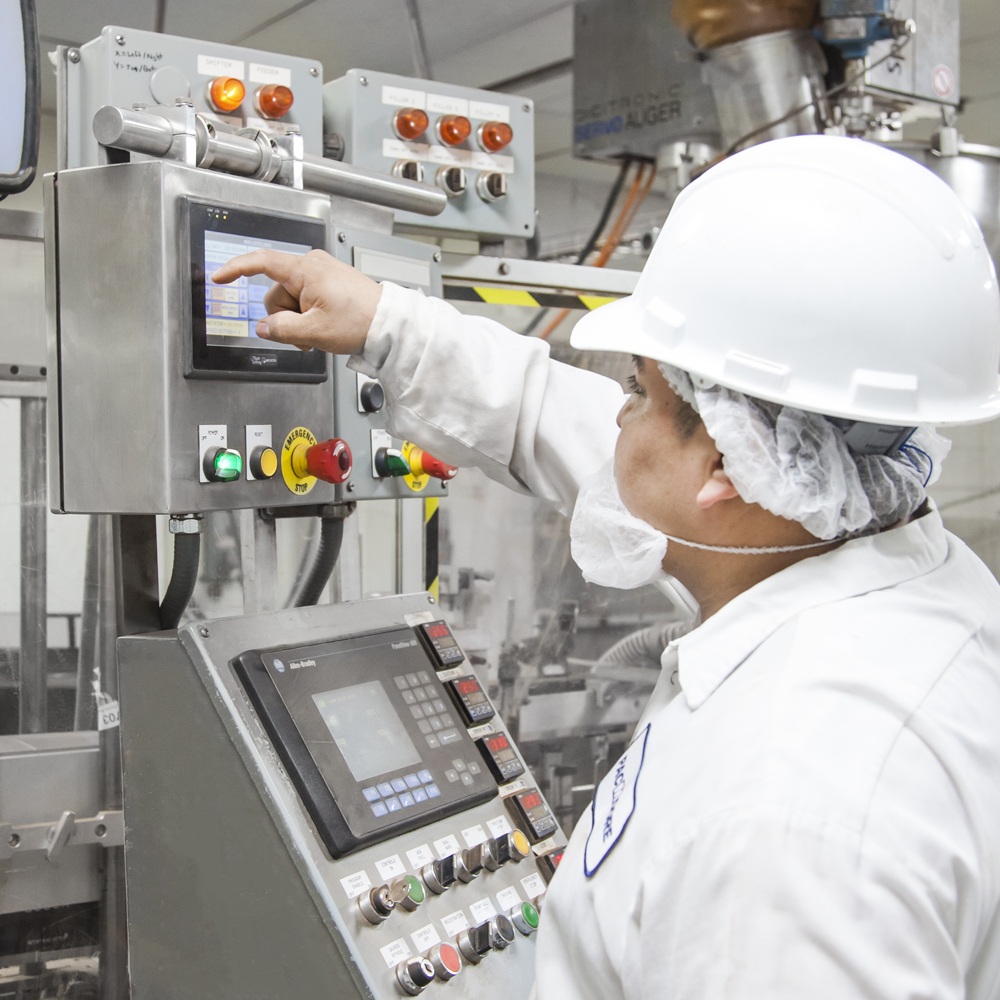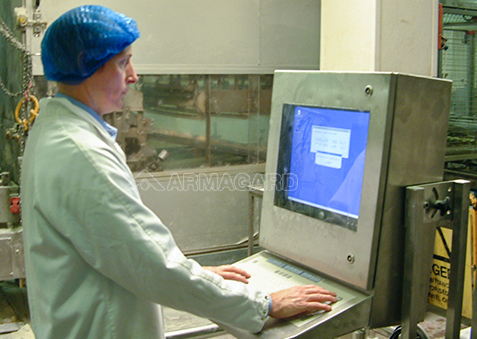 In food manufacturing environments, computers need to operate reliably, often 24/7, so that production lines keep moving and to meet deadlines. This is a particular challenge in food production, where stringent regulations, dust buildup and regular washdown make the manufacturing floor a hazardous place for PCs. Here are three ways that businesses can tackle the problem.
In food manufacturing environments, computers need to operate reliably, often 24/7, so that production lines keep moving and to meet deadlines. This is a particular challenge in food production, where stringent regulations, dust buildup and regular washdown make the manufacturing floor a hazardous place for PCs. Here are three ways that businesses can tackle the problem.
1. Keep Your PC away from the Manufacturing Floor
You could sidestep the hazards of the food manufacturing floor by putting your computers somewhere else. Doing so means you keep your computers in a clean, dry environment, allowing you to use any computer you want, without the risk of damage. By using an ordinary PC, you also save the money you would have spent on more-expensive industrial computers.
However, if your objective is to maximize efficiency, then this is a flawed strategy. The time it takes your employees to walk from one place to the next will soon add up, reducing productivity. You’ll also have to contend with hygiene issues. Staff might spread dust and by-product in other areas as they walk to and fro, or you could have the problem of them leaving and re-entering sterile areas.
Of course, you could extend your sterile areas to include the room your computers are in. However, you’d simultaneously extend the requirements of the manufacturing floor to those rooms, such as the need to jet wash equipment, defeating the point of removing your PCs from the floor in the first place.
For most manufacturers, keeping computers off the shop floor isn’t a sustainable solution to the problem. It wastes time, hinders productivity and creates extra problems that the next two solutions solve.
2. Use a Purpose-Built Industrial Computer
Purpose-built industrial computers, aka industrial panel PCs, are all-in-one solutions to the problem of protecting computers in manufacturing environments. Typically, they’re a computer built into a sealed body that provides protection from liquid and dust. Industrial PCs are robust and reliable. You can place them exactly where you need them, providing your employees with the greatest productivity savings in harsh conditions. However, they do have drawbacks.
First, panel PCs limit your choices, tying you into the specifications of the computer built into the sealed body. Even if you find one that meets your criteria, you could experience compatibility and integration issues if you install one alongside your existing systems. Second, these sealed units can be difficult to repair and update, often requiring a specialist engineer to do so. This involves extra cost and, importantly, increases production downtime while you wait for an engineer to be available. Third, if the computer breaks beyond repair, then these all-in-one units require you to replace the whole thing—again, at extra cost and increased downtime.
Finally, industrial PCs are expensive. This might not be an issue if you’re persuaded they represent a good long-term investment. However, the drawbacks will leave many business owners wondering if this is the case.
 3. Protect an Ordinary PC in an Industrial Computer Enclosure
3. Protect an Ordinary PC in an Industrial Computer Enclosure
An industrial computer enclosure houses an ordinary computer in a robust, protective body, converting an office PC into a reliable shop-floor unit.
Enclosures provide a number of benefits that make them a more flexible and cost-effective option than panel PCs:
- Use a PC of your choice: Source a computer to your exact specifications or save time and money by using one you already own.
- Enjoy ease of maintenance: Repair, replace or update the computer at any time. Easy access means your IT department can carry out maintenance themselves, reducing costs and downtime.
- Boost productivity: Touchscreen enclosures work through gloved hands, providing your employees with an uninterrupted workflow.
- Use a computer in any location: Enclosures protect your computers from dust, dirt, liquid and physical impact. Use computers in harsh conditions, with peace of mind about their longevity and reliability.
- Comply with regulations: Food-grade stainless steel enclosures are anti-bacterial and corrosion resistant. With a NEMA 4X/IP65 rating, you can jet wash an enclosure without risk to the PC inside. Shatterproof polycarbonate windows ensure your production line isn’t contaminated in the unlikely event of a breakage.
- Generate maximum ROI: Enclosures last for many years. Maximize your return on investment by using the same one to protect several generations of computers.
Enclosures combine the flexibility of an ordinary computer with the durability of an industrial PC. Importantly, they do so without the drawbacks of either, providing the protection, productivity and peace of mind that you require from your manufacturing systems.
 Ben Telford
Ben Telford
Copywriter, Armagard
Ben Telford is a copywriter for Armagard, an award-winning manufacturer of industrial computer and digital signage enclosures. Armagard has over 25 years’ experience designing and supplying enclosures for manufacturing, outdoor and public locations.
 RELATED CONTENT: Minimizing the Risk of Food Safety Problems
RELATED CONTENT: Minimizing the Risk of Food Safety Problems
Share this on Facebook, Twitter, LinkedIn, or email to a friend.
Click below to share:



